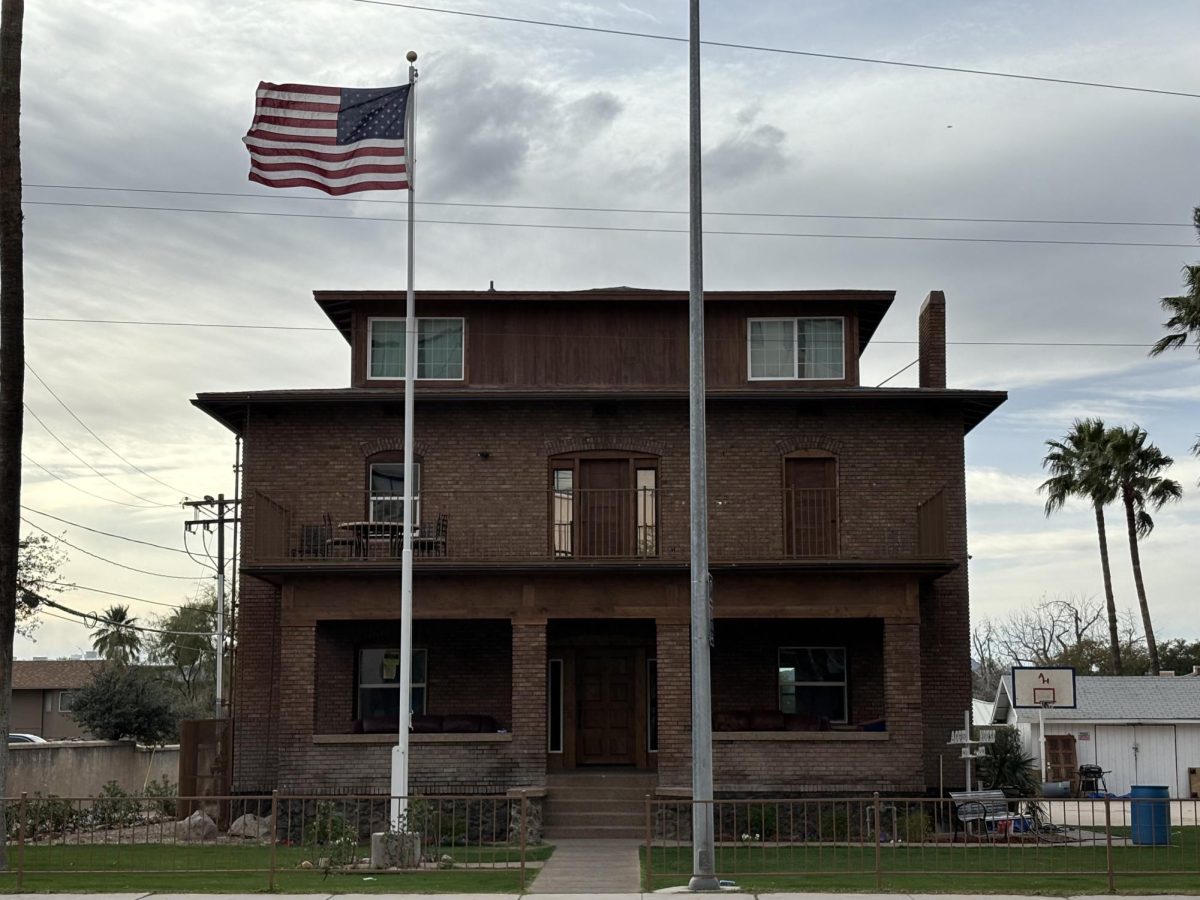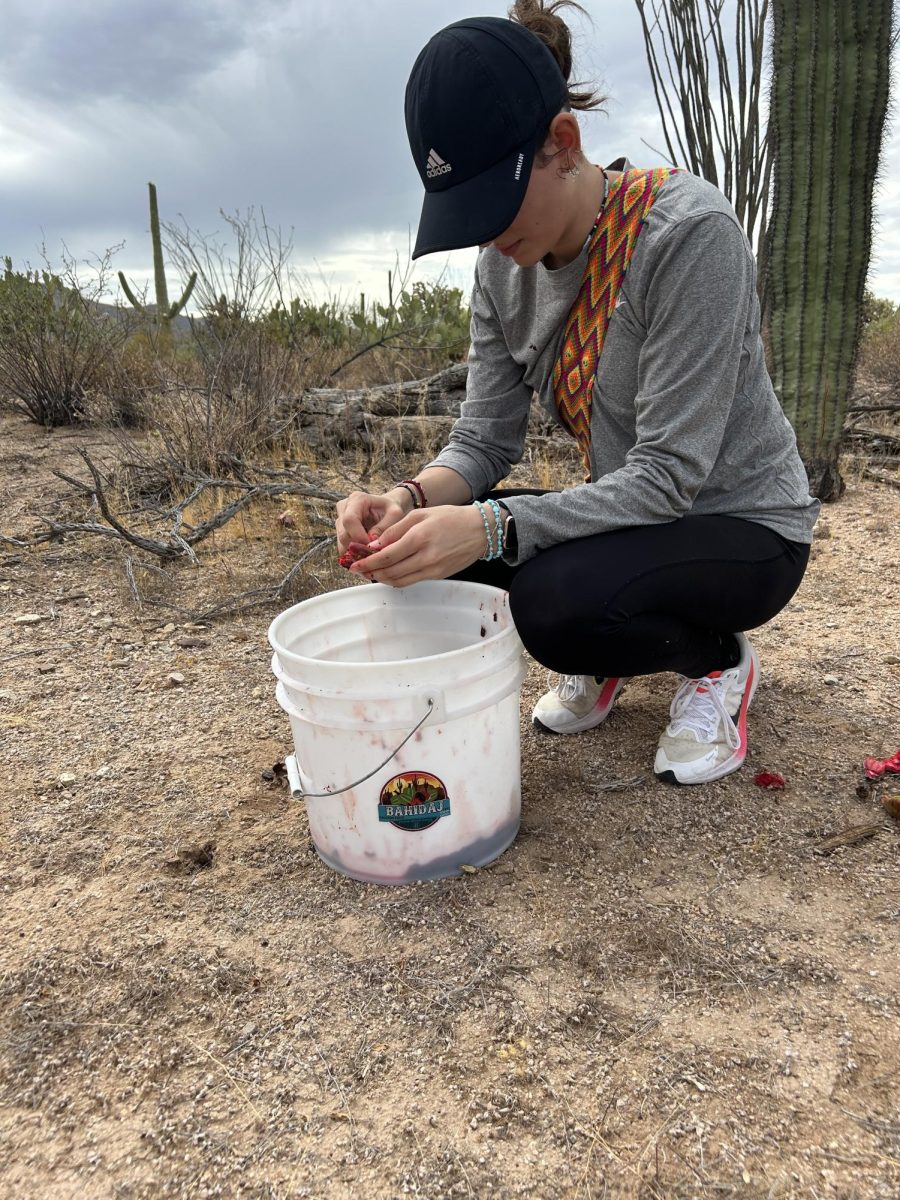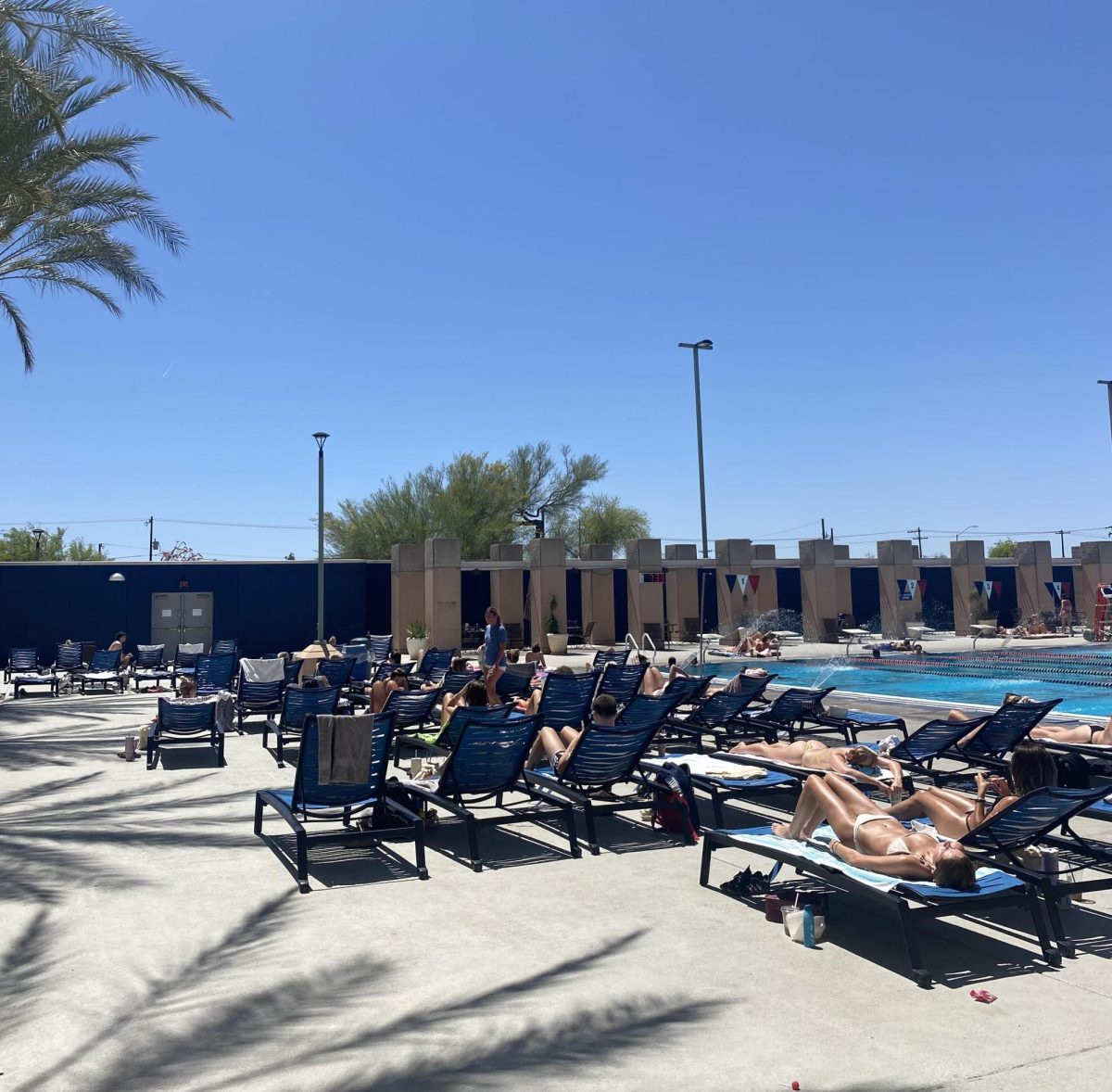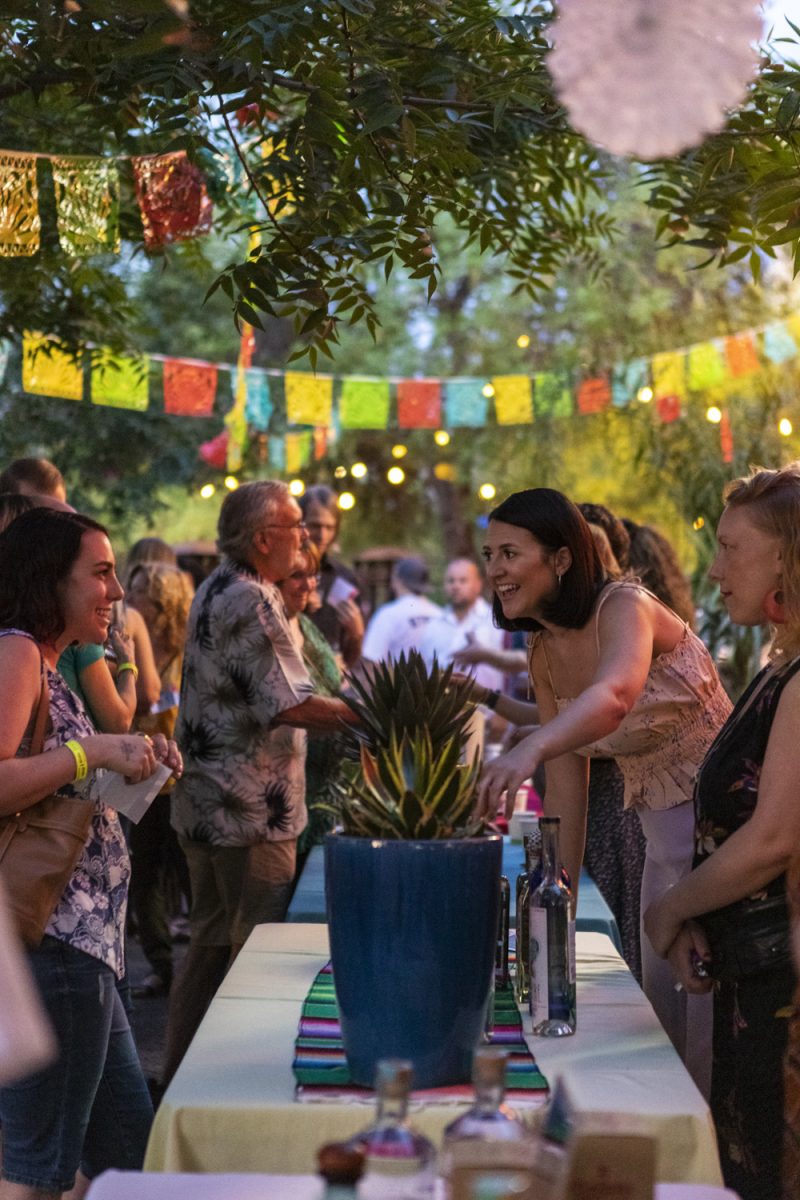As the late afternoon traffic on North Euclid Avenue picked up, a group of men in their late teens, early 20s sat in the sun on the fresh green lawn of Aggie House, cowboy hats and baseball caps beside them as the familiar sound of country music played from a speaker on the front steps.
After a year of hard work and banging tools, the Aggie House, where these students call home, was back.
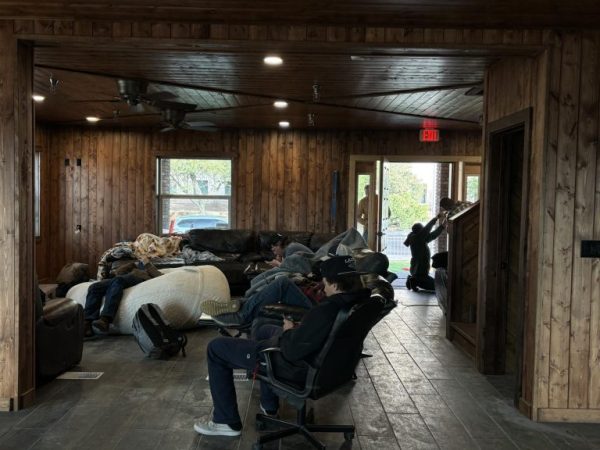
The $1.2 million restoration breathed new life into the historical building that was on a slow decline for several years.
The Aggie House has stood the test of time, bearing a multitude of men who carry on its heritage year after year.
The house at 819 N. Euclid Ave. is listed on the West University National Register Historic District that was established in 1980, said Jodie Brown, a historic preservation officer for the City of Tucson.
The renovation included redoing the full interior, replacing the roof, adding new appliances and windows, and updating floor plans of the 5,800-square-foot house. Aggie House alum Wade Accomazzo led the effort.
Accomazzo was a member of the Aggie House in the 1990s and has two sons who are continuing his legacy there.
At an alumni meeting in November 2022, Accomazzo offered to lead the renovation, from financially supporting the work to hiring the contractors and managing the project, said Panch Honne, an Aggie House alum.
The top-to-bottom project took place as the residents were still living in the house. After more than a century of needing only minor renovations, the 112-year-old building was showing its age under the weight of several generations of heavy cowboy boots and decades of wear and tear.
Rain would leak through the ceiling and flood the basement, soaking residents. The walls began to deteriorate as the floors began to crack, and there was no insulation or heat.
“When you live in there, you just feel sick all the time,” Honne said.
Accomazzo decided that his kids could not live in those conditions and that the house deserved to be preserved, said Honne.
“It shouldn’t have held up as many people as it has seeing the engineering of the house,” said Logan Ortega, an Aggie House alum who played a large role in the year-long construction project. “It got to a point of unsafe living conditions.”
Over the years, residents of the house did what they could to maintain it, but the house was falling apart, Honne said.
The renovation included updated technology and engineering that maintained the “charm of the old structure,” said Max Tucker, another alum. The house now features an industrial kitchen, keypad door locks, water sprinkler pipes, tile floors and tongue and groove dark-stained wood on the walls and ceilings that add to the older feel of the house in a contemporary way.
“It’s everything I could have dreamed up when I was a member,” Honne said.
The history of the house itself began 35 years before it was established as the Aggie House. It was originally built in 1912 and was used as a bed and breakfast and girls dormitory before Aggie House Inc. bought it in 1947, said Arlo Harold, a current member of the house.
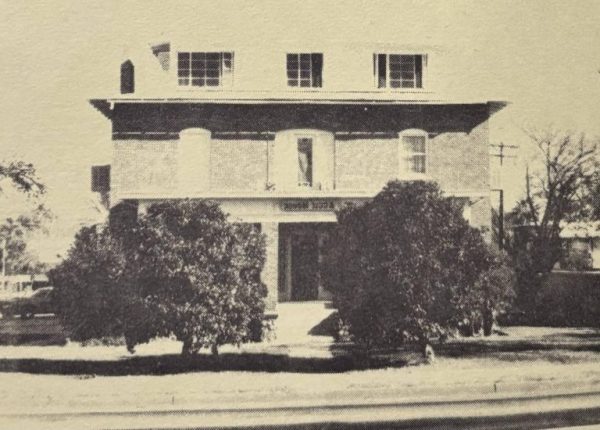
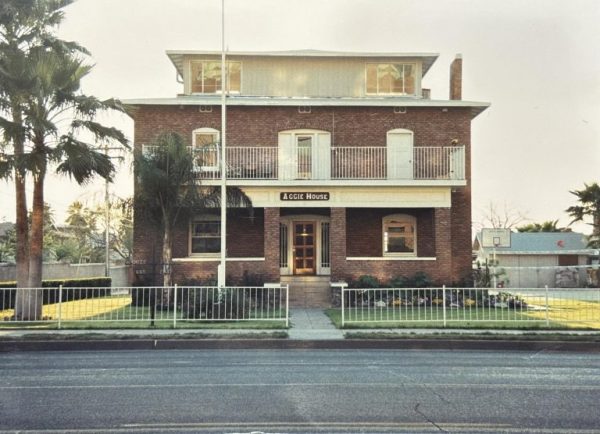
Being in such close proximity to the university, hundreds of people pass by it everyday but few know the significance of its history.
The Aggie House was founded in 1937 making it one of the oldest social organizations at the University of Arizona, though it is not directly affiliated.
It was created with the guidance and financial assistance of Dr. E.D. Tetreau, the professor of rural sociology, and Dr. R.S. Hawkins, the former vice dean of the College of Agriculture, according to the original founding documents.
Their goal was to create a co-op for young men in the agriculture college modeled after similar organizations at the University of Wisconsin, Texas A&M and Ohio State with the purpose of creating affordable living options for agriculture students.
Members of the house have been able to keep their expenses low by doing chores and maintaining the house themselves over the years, Honne said.
The organization has fraternal similarities but what sets them apart from average fraternities is their family-like relationship and commitment to the house, he said.
“That house has really given me so much that I can’t really give back,” Honne said. “When it comes to doing what I can as an alumni and a big brother to these young men, I’ll do it.”
In 1943, all members of the Aggie House enlisted to serve in World War II. While they were gone, they stored their belongings at the University of Arizona’s farm. Upon their return, members who were interested in restarting the co-op eventually bought the house in 1947 after their original house at 1624 E. First St. burned down.
Over the past 77 years, Aggie House members have established traditions and a culture that the alumni and men of the house refuse to abandon, said Honne.
There have been several occasions in which the organization was asked to drop their name to join a larger network of farming chapters, he said. However, the men of the house acknowledge that Aggie House is one-of-a-kind and are committed to keeping its name and legacy.
Today there are 24 members with 13 of them living in the newly renovated, 12-bedroom house.
“It’s home for not only the members but home for our friends and home for the sweethearts and girlfriends. That’s the place we all (gravitate) to just because we have a sense of belonging and family there,” Honne said.
Honne’s only hope for the future is to reconnect with their roots and reignite the Aggie House’s relationship with the UA, which at one point included advising the group.
Arizona Sonoran News is a news service of the University of Arizona School of Journalism.



